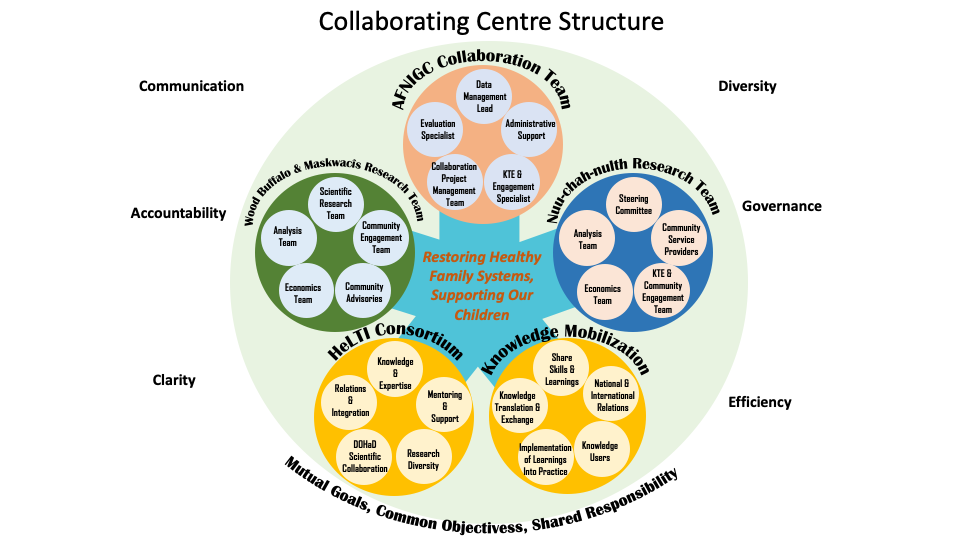Menu
Welcome to I-HeLTI Collaborating Centre
About The Collaborating Centre
The I-HeLTI Collaborating Centre is housed in the Alberta First Nations Information Governance Centre (Alberta FNIGC) and serves as a hub for all teams to accomplish the overarching goals and objectives of the project and to offer guidance around data collection, data governance and data sovereignty. The Alberta FNIGC is mandated by the Assembly of Treaty Chiefs to promote, protect and advance First Nations Ownership, Control, Access, Possession (OCAP®) principles in Treaty no. 6, Treaty no. 7, and Treaty no. 8. Contact us if you have questions: reception@afnigc.ca

Roles and Responsibilities
Working in tandem with each community-based research team, the Collaborating Centre will:
- Provide guidance on data management plans among partnering communities, including data collection, storage and documentation.
- Coordinate team discussions on research data protection, such as community-specific Indigenous Knowledge, by geographical region
- Develop administrative processes for data access and sharing amongst individual communities and teams, as well as harmonizing collective data.
- Implement regular and respectful strength-based communication processes around data interpretation while respecting Indigenous self-determination.
- Maintain ethical spaces for collaboration, knowledge exchange, and knowledge mobilization among research teams, and partnering communities.
- Create culturally appropriate opportunities to share, link, integrate, and harmonize data with existing international HeLTI teams.
- Facilitate connections with external stakeholders such as CIHR to identify ways to collaborate and support the governance and management of the I-HeLTI cohort.
- Produce outcomes to guide novel policy, data management, and Indigenous research processes towards Indigenous child development optimization and NCD prevention.
- Facilitate continuous learning for non-Indigenous, Indigenous researchers, and team members on Indigenous worldviews, research principles, and historical and social contexts.
- Provide additional capacity-building opportunities for partnering communities to train Indigenous researchers.
- Strengthen existing relationships and develop new cross-community collaborations.
